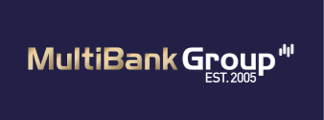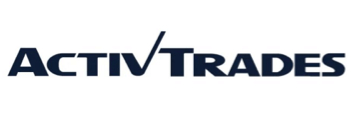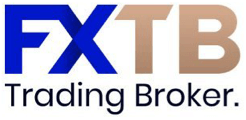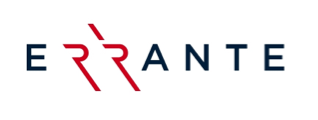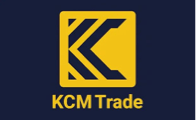BDSwiss is a global CFD broker founded in 2012 that has built its brand around accessibility, platform variety, and low minimum deposit requirements. Over the years, the broker has expanded its presence internationally, offering trading services through MetaTrader 4, MetaTrader 5, its proprietary WebTrader, and a mobile application equipped with analytical tools. Its commercial positioning targets retail traders seeking easy market access combined with educational resources such as webinars and market analysis.

Between 60 to 80% of retail CFD accounts lose money.
| Regulators | MISA FSA FSC SCA |
|---|---|
| Minimum Deposit | $10 |
| Leverage | Between 1:10 and 1:2000 | Payment Methods | Bank Transfer Visa Mastercard Cryptocurrencies Skrill Neteller KoraPay Wire Beeteller |
For Asian traders, BDSwiss often stands out due to its very low minimum deposit of USD 10, flexible leverage options up to 1:500 depending on jurisdiction, and a choice between spread-only and commission-based pricing models. These characteristics make it appealing for beginners and intermediate traders who want to enter the CFD market with minimal upfront capital while still accessing well-known trading platforms.
At first glance, BDSwiss presents itself as a modern and user-oriented broker. The website highlights platform functionality, market education, and simplified account structures rather than aggressive leverage marketing. This approach suggests an attempt to balance accessibility with a more structured trading environment, particularly for traders transitioning from demo to live accounts.
However, as with many internationally operating brokers, the key factor shaping BDSwiss’s overall risk profile is regulation. While the broker references multiple regulatory bodies, the level of investor protection varies significantly depending on the entity through which the account is opened. This distinction is particularly relevant for Asian traders onboarding outside European jurisdictions.
Regulation
Regulation at BDSwiss is mixed and fragmented across several jurisdictions. The broker operates under different legal entities, each subject to a distinct regulatory framework. While some of these regulators provide baseline oversight, they do not all offer strong investor protection comparable to top-tier authorities.
- Cyprus: Regulated by the Cyprus Securities and Exchange Commission (CySEC), providing MiFID II compliance and negative balance protection for eligible clients.
- Seychelles: Authorized by the Financial Services Commission (FSC), an offshore regulator with limited investor protection mechanisms.
- South Africa: Overseen by the Financial Sector Conduct Authority (FSB/FSCA), offering conduct supervision but no compensation scheme.
- Additional registrations: References to MISA and FSA-type frameworks, which do not constitute top-tier regulatory oversight.
It is important to clarify that outside the CySEC-regulated entity, investor protection is relatively weak. Offshore regulators do not enforce compensation schemes, and dispute resolution options are limited. While BDSwiss states that it segregates client funds and provides negative balance protection, these safeguards depend heavily on the specific regulatory entity and internal policies rather than universally strong external enforcement.
Account Opening – Our Experience
Opening an account with BDSwiss is designed to be fast and beginner-friendly. The registration process is completed online and requires basic personal information, followed by identity verification. The low minimum deposit of USD 10 significantly lowers the barrier to entry, making the broker accessible to traders with limited starting capital.
BDSwiss supports funding through bank transfers, Visa, Mastercard, cryptocurrencies, and several e-wallets such as Skrill and Neteller. The broker states that it does not charge deposit or withdrawal fees, and processing times are generally described as efficient. This operational simplicity is a strong point for traders who value frictionless fund management.
The onboarding process emphasizes ease of access rather than strict suitability filtering. While this accelerates account activation, it also reflects the broker’s retail-focused approach and the lighter regulatory environment under which many clients are onboarded.
Overall, the account opening experience is smooth and accessible, particularly appealing to new traders. However, traders planning to allocate significant capital should carefully consider the regulatory entity under which their account is registered.
Account Types
BDSwiss offers three main account types: Standard, Raw, and Elite. These accounts differ primarily in their pricing structure and access to additional services. The tiered setup allows traders to choose between simplicity and lower spreads with commission-based pricing.
| Account Type | Spread Model | Minimum Deposit | Leverage | Platforms Available | Best For |
|---|---|---|---|---|---|
| Standard | Variable spreads from ~1.5 pips | USD 10 | Up to 1:500 | MT4, MT5, WebTrader | Beginner traders seeking simplicity |
| Raw | From 0.0 pips + commission | USD 10 | Up to 1:500 | MT4, MT5, WebTrader | Active traders focused on lower spreads |
| Elite | Reduced spreads + commission | Higher tier | Up to 1:500 | MT4, MT5, WebTrader | High-volume traders seeking premium services |
The account structure offers flexibility, but the Standard account’s spreads are relatively high compared to low-cost ECN brokers. Traders choosing Raw or Elite accounts benefit from tighter pricing but must account for commissions and higher trading activity expectations.
Platforms
BDSwiss provides a solid range of trading platforms, including MetaTrader 4, MetaTrader 5, its proprietary WebTrader, and a mobile application. MetaTrader platforms offer full support for technical analysis, automated trading, and multi-device access.
The proprietary WebTrader and mobile app focus on usability and integrated analytics, making them suitable for traders who prefer browser-based or mobile-first trading. Educational tools, webinars, and market analysis are integrated into the platform ecosystem, reinforcing BDSwiss’s emphasis on trader education.
While platform variety is a strength, it does not offset regulatory limitations. Platform functionality enhances the trading experience but does not provide additional fund protection in the absence of strong oversight.
Assets
BDSwiss offers CFDs across several asset classes, including forex, indices, commodities, shares, and cryptocurrencies. This range supports basic diversification strategies within a single trading account.
Available Assets
Below you can see which assets are available for trading with BDSwiss:
| Asset | Availability |
|---|---|
| Currencies | 53 |
| Real Stocks | ✗ |
| Stock CFDs | ✓ |
| Commodities | ✓ |
| Indices | ✓ |
| Real ETFs | ✗ |
| ETFs CFDs | ✗ |
| Futures | ✗ |
| Options | ✗ |
| Bonds | ✗ |
| Cryptocurrency CFDs | ✓ |
| Real Cryptocurrencies | ✗ |
*Availability of certain assets may vary based on account type, platform, or region.
All instruments are offered exclusively as CFDs. There is no access to real shares or physical assets, which positions BDSwiss firmly as a trading-oriented broker rather than an investment platform.
Spreads
Pricing at BDSwiss depends heavily on the selected account type. Standard accounts feature variable spreads starting from approximately 1.5 pips, while Raw and Elite accounts offer spreads from 0.0 pips with commission.
Spreads Offered
Below a visual representation of BDSwiss's spreads across several currency pairs:
*Spreads are variable and may change based on market conditions, account types and trading volumes.
The commission-based accounts are more competitive for active traders, while Standard accounts may be less attractive for cost-sensitive strategies. Spread variability can increase during volatile market conditions, particularly on non-commission accounts.
Other Trading Costs
BDSwiss states that it does not charge deposit or withdrawal fees, which is a positive operational feature. Negative balance protection is provided, reducing downside risk for retail traders.
Overnight financing costs apply to leveraged positions and should be carefully monitored, especially when using higher leverage levels available under offshore entities.
Trading Conditions
BDSwiss offers leverage of up to 1:500 depending on regulatory jurisdiction. Funds are stated to be segregated, and execution is described as fast and reliable. However, leverage availability and protections vary significantly depending on the regulatory entity.
Traders using offshore-regulated accounts should apply conservative risk management, as regulatory recourse is limited compared to brokers supervised by top-tier authorities.
Is BDSwiss a Good Option for Asian Traders?
BDSwiss may appeal to Asian traders seeking low minimum deposits, multiple platform options, and access to educational resources. Its account flexibility and user-friendly onboarding make it suitable for beginners and intermediate traders.
However, traders who prioritize strong investor protection should be cautious. Outside the CySEC-regulated entity, regulatory safeguards are limited, which increases counterparty risk for larger balances.
Our Verdict
BDSwiss is a retail-focused CFD broker offering accessible entry points, platform diversity, and educational support. Its strengths lie in usability and low capital requirements.
The broker’s main weakness is regulatory strength. Offshore supervision and fragmented oversight reduce investor protection compared to brokers regulated exclusively by top-tier authorities.
In conclusion, BDSwiss can be suitable for smaller accounts and active trading strategies where capital exposure is limited. For traders seeking long-term security and strong regulatory backing, alternative brokers with stricter oversight may be more appropriate.
Frequently Asked Questions
Is BDSwiss regulated?
BDSwiss operates under multiple regulators, including CySEC in Cyprus and offshore authorities such as FSC Seychelles and South African frameworks. Protection levels vary by entity.
What is the minimum deposit at BDSwiss?
The minimum deposit is USD 10.
Does BDSwiss offer ECN-style accounts?
Yes. BDSwiss offers Raw and Elite accounts with spreads from 0.0 pips plus commission.
Can I trade real stocks with BDSwiss?
No. BDSwiss offers only CFDs, not real shares.
Does BDSwiss charge deposit or withdrawal fees?
No. The broker states that it does not charge fees for deposits or withdrawals.
Note: Any opinions expressed in this article are not to be considered investment advice and are solely those of the authors. Singapore Forex Club is not responsible for any financial decisions based on this article's contents. Readers may use this data for information and educational purposes only.







